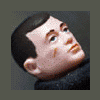-
Welcome to the eG Forums, a service of the eGullet Society for Culinary Arts & Letters. The Society is a 501(c)3 not-for-profit organization dedicated to the advancement of the culinary arts. These advertising-free forums are provided free of charge through donations from Society members. Anyone may read the forums, but to post you must create a free account.
Food photography in UK
-
Similar Content
-
- 301 replies
- 75,278 views
-
- 1 reply
- 1,876 views
-
- 40 replies
- 14,556 views
-
- 1,051 replies
- 192,900 views
-
- 2,694 replies
- 552,409 views
-
-
Recently Browsing 0 members
- No registered users viewing this page.






Recommended Posts